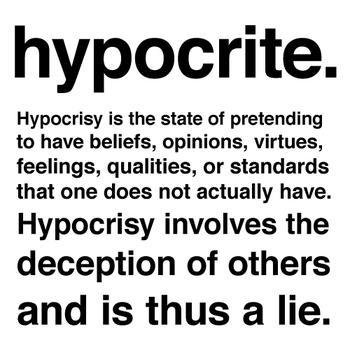
According to one school of psychology, we all have an ideal self and an actual self.
The actual self consists of what we actually think, do, and feel.
The ideal self is our conscious or subconscious evaluation of who we want to be — and who we think and hope we are.
What happens? People act on the premises of their actual selves, as their programming, core premises/convictions, personalities and attitudes require.
In some cases, these actions conflict with the ideal self. We’re not acting as we think we should. Instead of identifying the conflict — “Oh my gosh, I’m not acting or speaking in a way with which I agree” — we proceed, falsely believing that we have acted according to our ideal self, when we haven’t.
This leads to the phenomenon of a person saying he believes one thing — and sincerely meaning it — while in practice doing just the opposite.
Nothing in human nature makes this inevitable. Not everyone does it, and — among those who do — not everyone does it to the same degree.
The only antidote for hypocrisy is a continuing and serious commitment to self-awareness and self-reflection. Such self-reflection cannot merely be an intellectual exercise. You have to be honestly committed to meaning what you say, and doing what you think at all times. Most importantly, you have to be open to and alert for contradictions between your ideal self and your actual self/behaviors. It’s a commitment to self-objectivity, which is difficult, but not impossible.
Most of the clichés tell us that the world would be a better place if only we loved each other unconditionally, gave away all our possessions, forgave even the most serious offenses for which the offender is not sorry, and all the other meaningless blather. Nobody practices this crap because doing so would mean suicide, and most of us are not suicidal.
In reality, what would make the world a better place would be greater self-awareness, and self-honesty, on the part of the people who inhabit it.
Happy 2019!
Follow Dr. Hurd on Facebook. Search under “Michael Hurd” (Rehoboth Beach DE). Get up-to-the-minute postings, recommended articles and links, and engage in back-and-forth discussion with Dr. Hurd on topics of interest. Also follow Dr. Hurd on Twitter at @MichaelJHurd1, and see “Michael Hurd” on MeWe.
